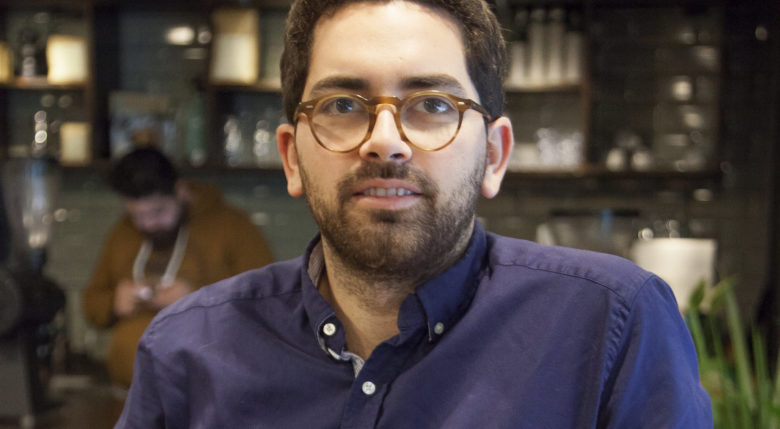Enis Hulli: In SEE And Turkey, B2C Startups Are Usually Designed For The Local Markets, B2B Ones Go Global

Trending Topics has started a series of interviews with venture capital, private equity, and angel investors from Bulgaria and Eastern Europe, to better understand their mindset, strategies, and put together a well-rounded picture of the industry as it is today.
What does the Turkish startup ecosystem look like? What is its profile? How has it evolved in the past years? Which are the success stories? How does the Turkish venture capital industry work? Is Turkey really such a good market for startups given its size? Does the ecosystem develop independently from the government? To find answers to all of these questions we reached out to Enis Hulli, who is one of the partners in 500 Startups Istanbul.
After trying himself as an angel investor in Turkey, in 2016 Hulli joined forces with serial entrepreneur Rina Onur, and Silicon Valley accelerator 500 Startups to raise a VC fund. 500 Startups Istanbul, where the US accelerator is one of the partners, invests throughout the SEE region and even has two Bulgarian companies on its portfolio – ClaimCompass, and the recently exited Cloudpipes.
Hulli often travels across the region to scout for exciting companies, he even runs a podcast about SEE founders called The Glocal. This is also how we got to know him several months ago during one of his visits to Sofia. We found his thoughts on the Turkish and European ecosystems, and VC in general, quite insightful. Therefore, we reached out to him again.
Trending Topics: Who is Enis Hulli and what led him to the VC industry?
Enis Hulli: I had my own startup back in 2010 and I was running it until 2012, while I was living outside Turkey. Then I moved back and had to make my own money, so I went to the construction business. As I earned money I was trying to do angel investments myself. My thesis was to invest in globally scalable ideas and businesses from Turkey because this segment was not really covered. We started an angel investment network called Firstseed. We were investing small amounts of capital – $25k to $50k. This is how I ended up with 500 Startups. I was basically trying to send companies to their batches in San Francisco. Eventually, they took me to their Stanford program where they teach people how to be VCs. This is where the idea of 500 Startups Istanbul cultivated. Then I met my partner Rina Onur at the beginning of 2016, and we started the investment fund.
How many angel investments do you have?
With the first network we did four, but we only had that for a year in 2015. It was just my side geek while I was in construction.
What’s the current state of the 500 Startups Istanbul portfolio?
We did 39 investments so far and the companies ever since have raised $250m. This means for every dollar we’ve invested as a first check, these companies were able to raise $50 in additional funding. And a lot of that additional capital comes from the US and Europe.
Given the lack of capital in our region, a lot of our good companies raise money from funds like Sequoia, LightSpeed, Google Ventures, NFX, etc. I think we will do a couple more investments, and then we’ll launch the second fund.
We already have three exits. The most recent is the Bulgarian company Cloudpipes, which was sold to Quickbase. Overall, the performance of the fund is very strong from an internal rate of return, but it’s still a paper return. You never know until you see liquidity. Until it becomes DPI, which means distributed cash, you really don’t know.

What was the size of the funds?
The first one was $15M, the next – the Annex Fund will be bigger.
What are the investment instruments you use?
If a company is based in Turkey we do equity. We do convertible note with the companies domiciled in UK or US
Who are your LPs?
The first fund was 100% private money. All of them were corporates and highly networked individuals.
In a previous conversation, you mentioned you were also trying to raise public money.
We are also looking at the opportunities to raise public money, yes. Whether this will be the Turkish, or other European funds and other institutions, we are looking at these options. But the private portion of the fund is pretty much covered. It’s normally harder to raise public money over here.
Why do you need public money, once you’ve been able to attract such a private commitment? This seems to be a trend in the region – first private fund and then raising public money.
In places like Turkey or Bulgaria, the equity culture isn’t mature yet. To prove yourself and also to get bigger tickets like $5m or $10m per LP is still not possible. It’s not like in the US where they have their own Fund of Funds. Only public money has these large tickets. That’s why we see so many funds in our region go for public money. Moreover, banks do not have Fund of Funds for VC or there are no endowment funds. Unlike in the US, in Eastern Europe, there are also no big pension funds that invest in VC.
When you say there’s not enough capital, what do you mean?
Historically there was no capital in general. Now there’s enough seed capital, but no big tickets. For instance, out of our 40 companies, six raised $10m+ rounds. They did it from international investors. If you are raising such round, there’s no chance to find a VC in this region. From a value chain perspective, your best companies will do great. But if good companies can’t find this capital, they won’t grow as big.
What would you advise a company in this situation?
I don’t think it’s a problem anymore. Talent meets capital. Today, a lot of European and even the big American VCs are now going international, which wasn’t the case ten years ago. So you can now see names like Sequoia and Accel investing in Eastern Europe or Turkey. Another trend is the establishment of remote offices and R&D sites. Just like Snapchat or Facebook have their remote R&D in Ukraine, or Oracle and Microsoft have such in Turkey. When you put those two paradigms in perspective, you see that funding is now following the capital, and not only the other way around.
What’s your investment philosophy and what’s your thesis?
My thesis is to bet on the talent in Eastern Europe and Turkey to be successful in a really mature and technologically advanced market like the US. Once you have such a thesis, you should invest in immature markets – these are tiny markets with less competition. You are taking huge market risk, true, but when the market matures you will be very well positioned.
We are leveraging what we call the geo arbitrage opportunity. We bet on being early in the market. We don’t have to be at the right time. If you are a US investor, you have to be at the right time, otherwise, the company cannot sustain in the market for three or four years without a capital boost. It’s not the case in our region. Here, you need to sustain long enough till your US competitor loses strength due to lacking capital, then you’ll be best positioned. When I look at global success stories coming from Turkey like Citus Datathat was acquired by Microsoft this year, I see the pattern – many of these companies entered the market very early on, stood there for 7-8 years, and as the market matured they were best positioned.
This is kind of our thesis: 80% of our portfolio will be b2b companies going after blue ocean ideas in noncompetitive markets. In most cases, in the b2c markets, the rule of “winner takes it all” is applicable, and the second, third and tenth competitor remains small. It’s different in b2b – there even the 15th player could be big enough. So we are not betting to be the winner. In the b2c market, it all comes down to money, while in b2b is not necessarily.
What’s the return you expect from the first fund?
Our goal is to beat S&P500 by a margin.
You keep comparing Bulgaria, Turkey and other Eastern European countries in the same category. Do you think they are comparable? While Bulgaria, for instance, is a rather R&D hub, Turkey can also offer a market for domestic startups.
They are quite distinct indeed. There’s a thing that I call the population paradox: countries like Bulgaria, Estonia, Israel are tiny from a market perspective, which makes the entrepreneurs think global from day one, these businesses are export-oriented by design. It’s different in mid-market countries like Turkey, Spain, or France: there entrepreneurs often start by thinking about their own markets, and this becomes their disadvantage. They might stay and grow on the domestic market for three years, while their competitor is becoming a global player. We always look for entrepreneurs who are not interested in local markets.
How has the VC industry in Turkey developed over the past several years?
The first Turkish VC started back in 2012-2013 seeing the success of all American VCs who invested in local companies like General Atlantic. The next three years were very fast for Turkey – both from an economical and VC perspective. After that and up until now, it has become more stagnant compared to the world. Of course, it has developed as everywhere in the world but slowly. The government is actually trying to push initiatives like the one in Poland, to boost processes like the development of equity culture, etc. A lot of the Turkish funds that were raised in the early days are now in their second investment cycles, after successfully investing their first funds. This is a good benchmark.
How much venture capital is available now in Turkey?
Around $100m are deployed every year. Interestingly, if you compare this to the number of exits, there’s a huge disparity. Unlike in ecosystems in Berlin or in London where you see a lot of capital and fewer exits and for each $1b allocated there are exits of $500m, here it’s vise-versa. Last year in Turkey, we saw five exits totaling $1.5b. If you look at 2016, you’ll see the same thing: $800m in exits, total VC investment – $90m.
Who are the fund managers and investors in the VC industry and what are their backgrounds?
It’s like everywhere else – hard to find VCs with an entrepreneurial culture like my partner Rina, who started in private equity and then raised over $40m with her two startups, before entering the VC industry. Unfortunately, we don’t see that much of operational experience, but that’s the case wherever you go, and it’s fine. As ecosystems mature, we see the recycling process in which successful entrepreneurs become VCs. In order for this to happen, however, VC activities are needed, and they usually start with people from other backgrounds and other investment areas, even corporates.
Which are the biggest success stories in Turkey so far?
Locally speaking, Alibaba acquired 70% of Trendio at a valuation of $1b last year. Yemeksepeti was acquired by Delivery Hero for almost $600m. If we are talking about Turkish entrepreneurs, who have their R&D in Turkey, but their market is somewhere else, we have to mention uDemy which became a unicorn, or Samumed, the biotech company worth $15b now and is one of the largest private unicorns in the US. Also, Atlassian acquired OpsGenie last year for $300m. OpsGenie was a purely Turkish company with 90% of their staff here, and they only had closed one round of funding.
What is the Turkish ecosystem like? Is something happening outside Istanbul?
Istanbul is definitely the hotspot for the domestic VC industry and where 60% of the startup activities are. Talking about technical capabilities – Ankara is also an important location, the rest of the startup activities are happening there, but VCs are not really looking at it. Apart from Istanbul and Ankara, there’s nothing. Therefore, I think the goal for Turkey right now should be to foster the development of more ecosystems like Ankara.
What is the profile and focus of the ecosystem in Turkey?
Local ideas are b2c, and global ideas are b2b. Half of the companies are having this global vision. When we started three years ago, 80% of the startups were looking at the local market, but with all the geopolitical struggles, that has shifted.
Speaking of verticals, fintech in the b2b space is one of the major areas as Turkish banks are quite ahead in their technological advancement. SaaS is another buzzword for the whole region.
Which other ecosystem in Europe is comparable to the Turkish?
I’d say Poland, there 50% of the startups are locally oriented. I wish I’d said Romania, but it’s not, because Romania is more globally oriented.
Do you think the EU money for VC funds in the past years were well spent?
Definitely. People now see VC as an asset class and know what it is. There are also a lot of the people who would have otherwise been corporate employees, becoming entrepreneurs. In the short run for VCs, this means more competition and higher valuations, but in the long run it’s better for the regional ecosystem. EU optimizes money for the ecosystems, not for the VCs.
Is there so much competition between VCs?
No. We indeed co-invest a lot. When we invested in Cloudpipes, we did it together with Launchub and Brightcap. Earlybird joined forces with Credo Ventures to back UiPath. I think there’s more synergy then competition.
+++ The latest Bulgarian exit: Cloudpipes gets acquired by Quick Base +++
Does the current political and economic situation in Turkey affect the development of the startup ecosystem?
Between 2017 and early 2018, it has, but over the past year, the economy and the currency have stabilized. Turkey is a huge export country and has a healthy economy. If you take out the geopolitical struggles incurred by Syria and Iraq, and look at it from a purely economic perspective it outpaces EU by the number of indicators like unemployment rate and export. If we put Turkey into perspective having in mind the neighboring countries, it does have an impact: the market becomes less attractive which means less money for local entrepreneurs. There’s a local market with 80m people and close to $800b GDP but there’s less venture capital for local ideas. This pushes many companies to export.
What’s the competitive advantage of the Turkish ecosystem?
The answer to this question comes to my blue ocean thesis: if you have good and affordable talent you should invest in companies in immature markets. This is what we also have in Bulgaria. But in Turkey, Romania, and Poland, there’s also a comparatively large local market, which allows us to invest in red ocean ideas (in red ocean the industry boundaries are defined and accepted, and the competitive rules of the game are known – ed. n.). Such red ocean companies cannot go to the US or UK because it would be suicidal for them, but they can grow locally and try to globalize later on. In this sense, Turkey is a good test ground. You cannot do this in Bulgaria, because the local market is not existent.
Are there any governmental initiative that support the local entrepreneurial ecosystem?
More than 50% of the funding in idea- and seed-stage comes in the form of grants from the government. This has been the case for the past several decades, and it’s easy to find this initial funding of a couple of hundred thousand dollars here. There are also incentives for R&D – you don’t have to pay tax and insurance for a certain period of time. What was missing was the equity culture, and this is what the government has been working on in the past five years, trying to roll out state initiatives like Fund of Funds. The government used to be active in funding R&D and not that much in funding the commercialization of the products. But that has started to change.
Do you think grants are the way to stimulate entrepreneurship?
Depends. For instance, no VCs in our region back biotech because you never know when the commercialization will take place. It’s similar in the US, even though they already have enough funds in the life-science and biotech space, the state is still pouring grants. The government needs to step up in areas where commercialization takes time. And its role is to also optimize for the long term.
*Originally, this interview was published with the title “In Turkey, it’s harder to raise public money than private”. It was changed because according to Hulli, it only reflects the situation of 500 Startups Istanbul and not the whole VC industry in Turkey.
Read also:






























